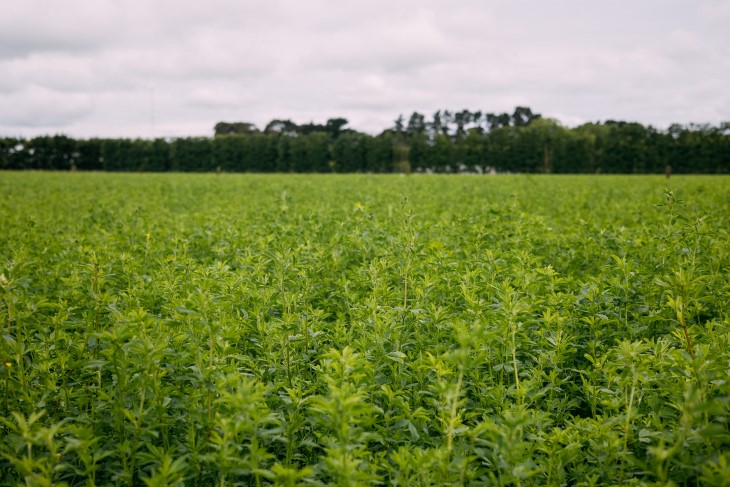ACC’s Climate Change Impact Fund invests in solar farms, plant protein

We are investing in initiatives that will reduce carbon emissions and underline our commitment to being a responsible investor.
ACC’s Climate Change Impact Fund is investing in solar farms and plant protein - initiatives that will reduce carbon emissions and underline our commitment to being a responsible investor.
Leaft Foods’ technology extracts a highly nutritional plant protein called Rubisco from green leafy crops. The company works with commonly grown crops like lucerne and oats, offering farmers a commercially viable means of reducing their carbon footprint.
Lodestone Energy is developing solar farms across five sites in the upper North Island. The solar farms will produce about 400 GWh of daytime, renewable energy, enough to power 50,000 New Zealand homes – or a city the size of Hamilton.
“The Climate Fund is about investing in climate solutions,” says James Muir, Climate Change Impact Fund Manager. “Leaft and Lodestone illustrate the fund’s breadth - food to energy, early-stage technology to large scale infrastructure.”
The fund supports Aotearoa New Zealand’s transition to a low-carbon economy while providing strong risk financial returns that help meet the cost of ACC’s work in preventing injuries and getting people back to everyday life if they’ve had an accident.
These investments will assist in the transition.
For example, while New Zealand’s electricity generation is already more than 85% from renewable sources, decarbonization of the electricity sector isn’t occurring fast enough to reach the Government’s goal of 100% renewable electricity generation by 2030.

Anticipating positive returns
Lodestone’s solar farms combined are expected to avoid approximately 40,000 tonnes of carbon dioxide equivalent per annum, based on Ministry for the Environment’s emissions factor for electricity purchased from the grid.
Leaft Foods provides farmers with a pathway to diversify into plant protein production as New Zealand’s agricultural sector grapples with the challenges of greenhouse gas emissions. Leaft’s modelling suggests that producing Rubisco protein directly from leafy crops has a 10x lower carbon footprint per hectare than conventional dairy protein.
We support the Government goal of NZ being net zero by 2050 or before. Interim targets for our corporate and the investment portfolio have been set consistent with net zero by 2050.
We’ve cut the carbon intensity of our listed equities by 49% compared to a 2019 baseline and are on track to meet interim targets of a 60% reduction by 2025 and a 65% reduction by 2030.
“The pressing need to reduce emissions provides a significant economic opportunity to New Zealand businesses,” Mr Muir says. “We’re very much of the view that for companies to have an impact on climate change, they need to be commercially successful.”
Our Climate Change Impact Fund is actively seeking to invest in companies that provide commercial returns and emission reductions.
Find more on our climate change initiatives:
Find more on Leaft Foods and Lodestone Energy:




